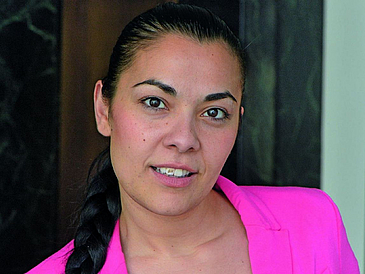Dr. Reyhan Sahin has been awarded the Deutscher Studienpreis 2013 for her doctoral thesis on “The significance of the Muslim headscarf in Germany” [Die Bedeutung des muslimischen Kopftuchs in Deutschland]. The prize, funded by the Körber Foundation, is one of Germany's most highly endowed prizes for young researchers. It is open to researchers in all disciplines whose doctoral thesis is awarded magna or summa cum laude. Apart from being excellent, another selection criterion is that the thesis is of especial social significance. Linguist Dr. Reyhan Sahin, who submitted her doctoral thesis at the University of Bremen in 2012, received one of the six second-place prizes awarded by the foundation this year.
Headscarf as symbol of rebellion?
Dr. Reyhan Sahin's doctoral research is the first empirical study on the semantic meaning associated with wearing a headscarf on the part of young Muslim women in Germany. Although the subject is highly topical at the present time, receiving not only media attention but also occupying the courts, this is the first time it has been subjected to detailed academic analysis. Sahin carried out observations of 30 Muslim women in the North of Germany, photographing and conducting the interviews which then formed the anonymous empirical backbone of her research. The women were described in all facets of their clothing and daily life. Her interviewees include both women with migrant biographies as well as converts to Islam. She distinguished between wearers of headscarves with an academic education and those who had not studied. Her analysis takes account of how the headscarf is tied, dressing style, overall appearance, accessories, and above all the relation between dress and the religious conviction of women who wear the headscarf. A somewhat surprising finding is the significance of the headscarf as a sign of emancipation. As they get older, most of the women researched discard the traditional Muslim practices of their parents and arrive at their own interpretation of Islam. For this group, the headscarf – in combination with a fashionable style of dressing and an attractive feminine look – is seen as a sign of feminine Muslim rebellion. Above all, it serves to express their understanding of sexuality, which is based on principles of gender equality. Dr. Reyhan Sahin could only trace gestures of submission under patriarchal Muslim structures to a small minority of the sample. In her words: "I perceive my research work as a contribution both to scholarship as well as to better international understanding in Germany."

